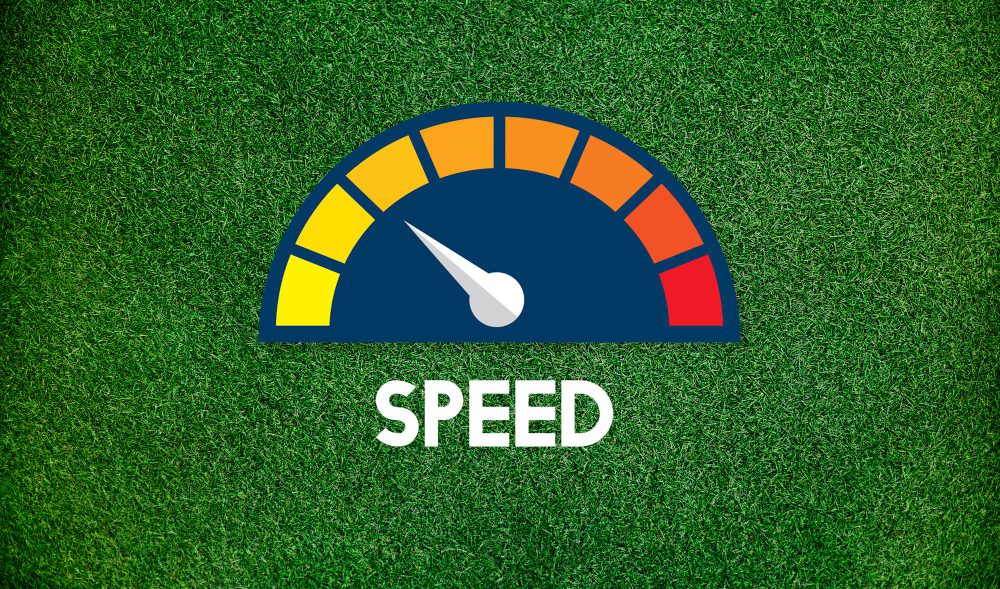When it comes to browsing the internet or streaming content online, the speed of your internet connection can make a significant difference in your experience. Slow download speed can be frustrating and time-consuming, but there are several ways to improve it.
In this article, we will discuss the importance of good download speed, factors that affect your internet connection, and effective ways to enhance your internet speed.
Understanding Good Download Speed
Download speed is the rate at which data is transferred from the internet to your device. It is measured in megabits per second (Mbps) or gigabits per second (Gbps). Good download speed depends on what you use the internet for. For instance, browsing the web or checking emails require lower download speeds than streaming high-quality videos or playing online games.
Importance of Good Download Speed
Good download speed is essential for several reasons. It determines how fast you can browse the internet, stream videos, and download files. Slow download speed can cause frustration and delays, leading to a negative user experience. It can also affect productivity, especially when working remotely or attending online classes.
Factors Affecting Download Speed
Several factors can affect download speed. Understanding these factors can help you troubleshoot and improve your internet connection.
Internet Plan
Your internet plan plays a significant role in determining your download speed. Different internet service providers offer various plans with different speeds. The higher the speed, the more expensive the plan. Therefore, choosing an internet plan that meets your needs and budget is crucial.
Network Congestion
Network congestion occurs when too many users connect to the internet simultaneously, leading to a decrease in internet speed. This often happens during peak hours, such as evenings and weekends. To reduce network congestion, consider downloading large files during off-peak hours or upgrading to a higher-speed plan.
Hardware Issues
Hardware issues such as outdated routers or modems, damaged cables, or malfunctioning network adapters can also affect download speed. Ensure that all hardware components are up-to-date and functioning correctly.
Distance from Service Provider
The distance between your device and the internet service provider’s server can also affect download speed. The farther you are from the server, the slower your internet speed may be. If possible, choose an internet service provider that has servers close to your location.
Interference and Obstructions
Interference and obstructions such as walls, furniture, and other electronic devices can also affect your internet connection. These factors can weaken the Wi-Fi signal, leading to slower download speeds. Consider placing your router in an open area and reducing the number of obstructions between your device and the router.
Effective Ways to Improve Download Speed
Improving download speed requires a combination of software and hardware solutions.
Here are some effective ways to enhance your internet connection:
Upgrade Your Internet Plan
Upgrading your internet plan is the easiest and most effective way to improve download speed. Contact your internet service provider to determine if a higher-speed plan is available in your area. While this may come at an additional cost, the increased speed can make a significant difference in your internet experience.
Reduce Network Congestion
Reducing network congestion can also improve download speed. One way to achieve this is to download large files during off-peak hours. Alternatively, you can prioritize the device you’re using for downloads or limit the number of devices connected to the internet.
Optimize Hardware and Software Settings
Optimizing hardware and software settings can also enhance your internet connection. This includes updating your router or modem firmware, ensuring your device’s software is up-to-date and disabling any unnecessary programs or applications that may be consuming bandwidth.
Adjust Router Placement
Router placement can also affect download speed. Place your router in an open area and away from walls or other obstructions. Additionally, consider elevating the router or using a signal extender to enhance coverage and signal strength.
Reduce Interference and Obstructions
Reducing interference and obstructions can also help improve download speed. This includes reducing the number of electronic devices near your router, minimizing the use of wireless speakers or baby monitors, and avoiding placing the router near large metal objects.
Use a Download Manager
Using a download manager can also improve download speed. A download manager can split large files into smaller parts, allowing for faster download speeds. Additionally, it can resume downloads that were interrupted, saving time and effort.
Conclusion
Good download speed is essential for an optimal internet experience. Factors such as internet plan, network congestion, hardware issues, distance from the service provider, and interference can all affect download speed.
However, effective solutions such as upgrading your internet plan, reducing network congestion, optimizing hardware and software settings, adjusting router placement, reducing interference and obstructions, and using a download manager can help improve your internet connection.
FAQs
What is considered a good download speed?
A good download speed is typically considered to be around 25 Mbps or higher for a single user. However, this may vary depending on your internet usage and needs. For example, if you frequently stream high-definition videos or play online games, you may require a higher download speed to ensure a seamless experience.
Can too many devices connected to my Wi-Fi network affect download speed?
Yes, having too many devices connected to your Wi-Fi network can affect download speed. This is because each device connected to the network consumes bandwidth, which can lead to network congestion and slower speeds. To improve download speed, consider limiting the number of devices connected to your network or prioritizing the device you’re using for downloads.
How can I determine if my router needs an upgrade?
If you’re experiencing slow download speeds, it may be time to upgrade your router. A good rule of thumb is to upgrade your router every three to four years. Additionally, if your router is not compatible with your internet plan or doesn’t support the latest wireless standards, this can also affect download speed.
Can a VPN affect download speed?
Yes, using a VPN can affect download speed. This is because the data being transmitted through the VPN is encrypted, which can lead to slower speeds. However, some VPNs are optimized for faster speeds and may not significantly impact download speed. Additionally, using a VPN can improve security and privacy when downloading files from the internet.
How long does it take to download a 1GB file with a 50 Mbps internet connection?
With a 50 Mbps internet connection, it should take approximately 2 minutes to download a 1GB file. However, this may vary depending on factors such as network congestion and the source of the download. Additionally, using a download manager can help speed up the process by splitting the file into smaller parts for faster download speeds.



